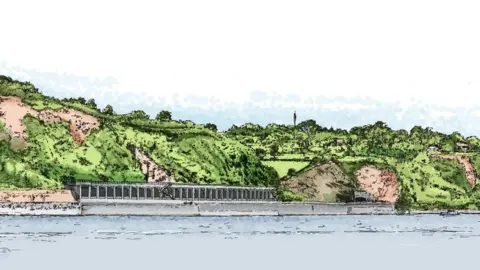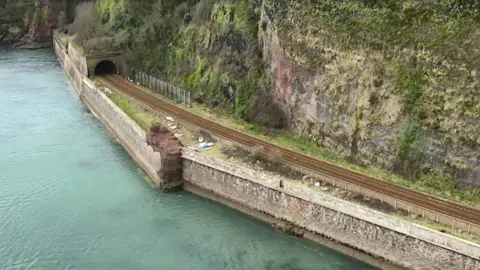Devon railway line rockfall shelter to be extended at Dawlish
 Network Rail
Network RailPlans to extend an existing rockfall shelter over the main railway line in Devon have been approved.
Track operator Network Rail and Teignbridge District Council said the 685ft (209m) long open-sided extension at Parsons Tunnel would help protect the line between Dawlish and Holcombe.
The £37.4m project north of the tunnel was expected to start in August and take a year to complete, they said.
The extension would protect the line "for generations to come", they added.
Network Rail and the council said the new section would be made of modern materials rather than the current brick-built enclosed tunnel, which was last extended 100 years ago.

Preparatory work at the top of the cliffs overlooking the stretch of railway began in March, Network Rail said.
Engineers were cutting back some vegetation, but the work was "being closely monitored to ensure the least disruption for wildlife habitats and biodiversity", it said.
Chris Pearce, from the track operator, said: "The existing rockfall shelter has proven its effectiveness for a century and so this modern extended structure will protect the railway for generations to come alongside a section of cliff that is becoming increasingly hazardous from rockfalls."
The shelter is the third phase of work to protect the main line, which travels along the south Devon coast, after part of the line at Dawlish was washed away by the sea in February 2014.
It left Cornwall and most of Devon without a railway line to the rest of the country for several weeks.
A new sea wall in the town to protect the track was hailed a success earlier this year and would "protect the town and region for at least the next 100 years", Network Rail said.

Follow BBC News South West on Twitter, Facebook and Instagram. Send your story ideas to [email protected].
